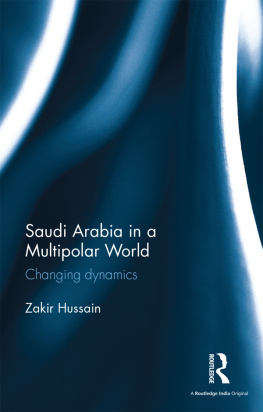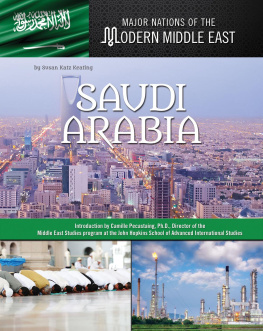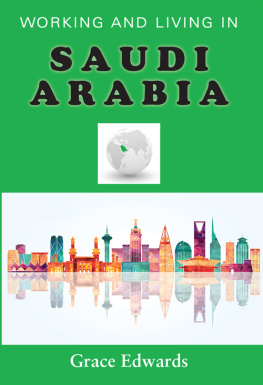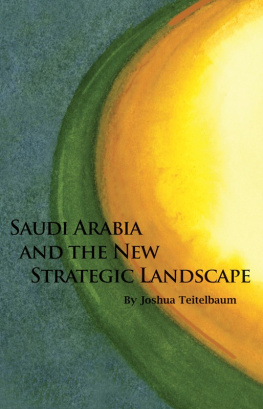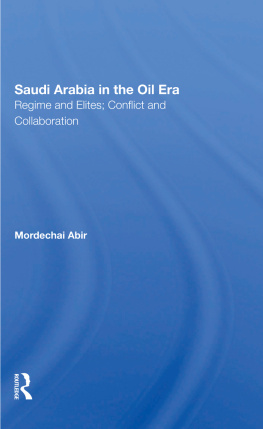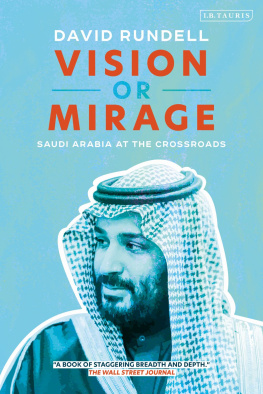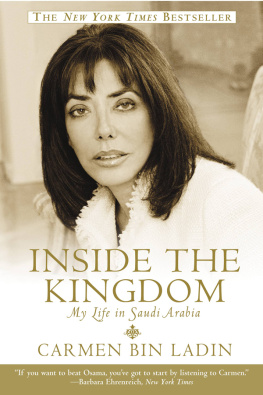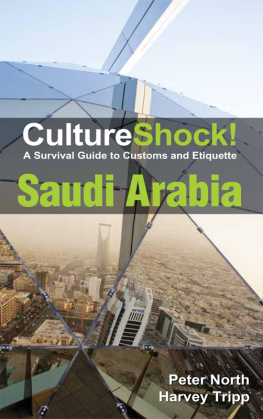Saudi Arabia in a Multipolar World
The Kingdom of Saudi Arabia has established itself as the twelfth-largest economy in the world, the largest West Asian economic power, worlds largest oil producer and a strong and capable force in international politics, particularly in the Sunni Islamic world. However, at present it is at a crossroads. Should it continue as a kingdom or usher in the process of inclusive political representation?
This volume answers such questions and explores how the state is coping with domestic, regional and global developments to remain relevant in the changing times. It provides a holistic overview of a slew of economic, political, cultural, military and security policy measures that have been initiated by the government. The work also offers a detailed analysis of Saudi Arabias relations with three significant powers the USA, China and India and how they are evolving under new geopolitical and geostrategic dynamics.
This book will interest strategists, policymakers, researchers and students of international relations, geopolitics, political science and political economy as well as the informed reader.
Zakir Hussain is Research Fellow at the Indian Council of World Affairs, New Delhi, India. A political economist specializing in the Middle East, South Asia, the USA and China, he has been associated with the National Labour Institute, International Labour Organization, Institute for Defence Studies and Analyses and National Maritime Foundation, and has acted as consultant to institutions including the International Organization for Migration, European Union and Ernst & Young. He is an alumnus of the prestigious International Visitor Leadership Program of the US Department of State and has held positions as visiting scholar across China, the USA, Syria and Kuwait.
Indian Council of World Affairs (ICWA) is a prestigious, proactive, autonomous think-tank specialising in foreign policy issues and external affairs, established in 1943 by a group of eminent intellectuals. The Council conducts policy research through its in-house faculty as well as external experts. It organises an array of intellectual activities conferences, seminars, roundtable discussions, lectures and publications and maintains a landmark and well-established library, website and the journal Indian Quarterly. It is engaged in raising public awareness about Indias role in international affairs and offers policy models and strategies to the government and people while serving as a platform for Track-II dialogues and interactions with other foreign think-tanks.
Saudi Arabia in a Multipolar World
Changing dynamics
Zakir Hussain
First published 2016
by Routledge
2 Park Square, Milton Park, Abingdon, Oxon OX14 4RN
and by Routledge
711 Third Avenue, New York, NY 10017
Routledge is an imprint of the Taylor & Francis Group, an informa business
2016 Indian Council of World Affairs
The right of Zakir Hussain to be identified as author of this work has been asserted by him in accordance with sections 77 and 78 of the Copyright, Designs and Patents Act 1988.
All rights reserved. No part of this book may be reprinted or reproduced or utilised in any form or by any electronic, mechanical, or other means, now known or hereafter invented, including photocopying and recording, or in any information storage or retrieval system, without permission in writing from the publishers.
Trademark notice: Product or corporate names may be trademarks or registered trademarks, and are used only for identification and explanation without intent to infringe.
British Library Cataloguing-in-Publication Data
A catalogue record for this book is available from the British Library
Library of Congress Cataloging-in-Publication Data
A catalog record has been requested for this book
ISBN: 978-1-138-64124-2 (hbk)
ISBN: 978-1-315-63062-5 (ebk)
Typeset in ITC Galliard
by Apex CoVantage, LLC
TO MY
FATHER AND MOTHER
Contents
The present volume has been inspired by some recent developments that have potentially influenced the political and strategic landscape of the Gulf region. The centre of analysis is Saudi Arabia. The developments that have inspired its policy responses include, first, the shifting US focus from the region, substantiated by the announcement of the rebalancing policy of the Obama administration; second, the growing rapprochement between Washington and Tehran, leading to the resurgence of Iran after a gap of more than three decades; third, the potential future of Arab Awakening; fourth, the renewed sectarian conflict in the region, with a political ambition to perhaps redraw the existing national boundaries and connect with the Ummah; fifth, the re-emergence of China and India as Asian politico-economic forces that desperately need the energy supplies from the region for their continued economic resurgence; and sixth, in backdrop of the USAs pivot to Asia, the footprint of Moscow is becoming more visible and dominant.
These developments are not only potentially impacting upon the regional dynamics, but also inducing significant changes in the political and strategic thinking inside Saudi Arabia. The US policy of rebalancing and growing reconciliation between Washington and Tehran have unnerved Riyadh, particularly with regard to its possible consequences on its own foreign and domestic manoeuvrability. The United States (US) and Saudi Arabia enjoyed a special relationship for eight decades, which surpassed the reciprocity of oil security and regime protection. Riyadh was always ready with its political and financial backing to the US in its direct and indirect missions, including containment of the growing influence of the former USSR in Africa, Asia and Latin America. (To see how Saudi Arabia helped several US presidents when Congress was opposed to their policies in these areas, see Rachel Branson, Thicker than Oil.) The kingdom has also been one of the largest arms importers from the US, which sustained the American militaryindustrial complex. In addition, Riyadh gave first preference to US banks for depositing its oil riches, mostly without any liability of interest payment. In return, the US helped Saudi Arabia in modernising the Bedouin economy, helping the kingdom emerge as the largest oil producer in the world and inducing its citizens to enjoy modern education and exposure to an advanced lifestyle. Today, Saudi Arabia is one of the richest nations of the world, is the largest economy in the Arab world, the only Arab country in the G-20 grouping, and home to one of the most technology-savvy youth, particularly in the use of the internet, mobile phones and technology-driven lifestyle.
Despite all these achievements, todays Saudi Arabia is not strong enough either to ensure its own internal security on a sustained basis or to play a decisive and autonomous role to influence and direct the events occurring in its neighbourhood. Internally, the kingdom is as vulnerable as it was decades earlier: sectarian issues, both internal and in its neighbourhood, particularly in the Eastern Province, are posing serious challenges as they did during the Iranian Revolution (1979). The kingdom still depends on clergy to ensure its legitimacy and survival. The echoes of the Afghan War still reverberate in the deep deserts of the kingdom, misleading the Saudi youths to join holy wars, while the US has already shed the mantle of the Cold War and has broken ice with the Islamic Republic of Iran without taking Saudi Arabia into confidence.


